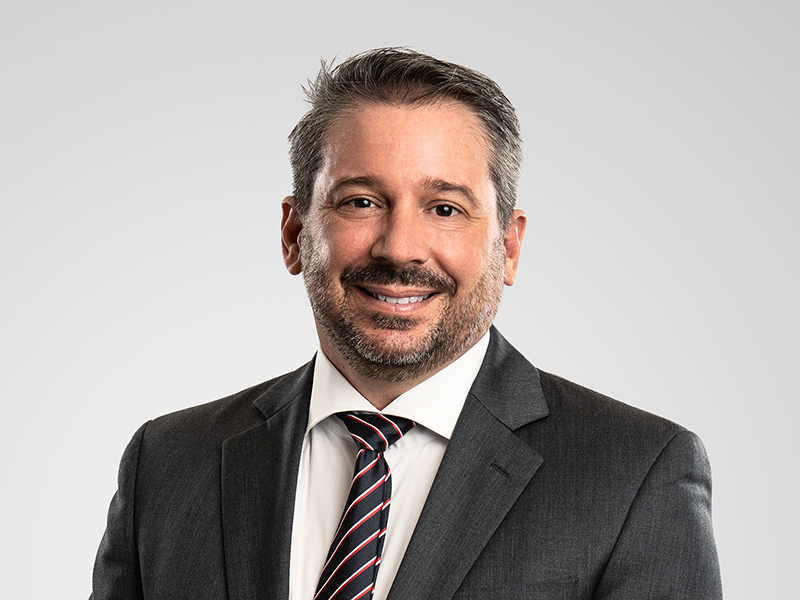Structuring Special Purpose Vehicles (SPVs) in BVI and Cayman
Special purpose vehicles (SPVs) are a cornerstone of offshore structuring, used globally by fund managers, institutional investors and multinational corporates to pool capital, facilitate cross-border investments, and manage risk. Despite robust regulatory requirements, the British Virgin Islands (BVI) and Cayman Islands continue to dominate as preferred jurisdictions in which to structure SPVs.
This article outlines why SPVs are so widely used, how the relevant regimes in BVI and Cayman differ, what regulatory obligations apply, and how Harneys Fiduciary supports compliant, efficient SPV maintenance.
What is a SPV?
A special purpose vehicle (SPV) is a legal entity created for a specific, ring-fenced objective - typically to hold a single investment, finance an asset, or isolate risk. SPVs are essential tools in investment structuring, joint ventures, merger and acquisition transactions, and securitisations. Their appeal lies in simplicity, flexible governance, and asset segregation, particularly when they are incorporated in international financial centres such as the BVI and Cayman Islands.
Why managers use offshore SPVs
Over the past decade, the use of BVI and Cayman-incorporated SPVs has significantly expanded among fund managers, specialist startup investment or syndicated investing platforms, and corporate dealmakers. From venture investing syndicates and private equity co-investment platforms to multinational corporates and insurance groups, SPVs have emerged as a key structuring tool to streamline investor participation and isolate risk.
While both BVI and Cayman remain popular jurisdictions for SPV formation, the BVI is seeing a sharper increase in usage, particularly for single-asset structures, due to both cost efficiency and regulatory obligations which tend to be more streamlined than those in Cayman when applied to typical single asset holding vehicles. Cayman, meanwhile, continues to play a crucial role in institutional settings and for the formation of regulated investment funds, especially in regions in which managers, limited partners, and their onshore legal and tax advisors have come to view Cayman as the market standard fund structuring jurisdiction.
The key first step for any market participant considering forming a BVI or Cayman SPV, regardless of where they are located globally, is to consult with their onshore legal and tax advisors to ensure that a BVI or Cayman structure is appropriate in light of the location of the entity’s operators, investors and the underlying investment, and that all relevant local legal, tax and reporting obligations are understood and complied with. Both BVI and Cayman offer internationally respected legal systems based on English common law, flexible corporate statutes that accommodate multiple share classes and bespoke governance arrangements, whilst remaining at the forefront of global transparency through international information exchange initiatives. Understanding the nuances of both jurisdictions is critical for any manager or platform structuring cross-border deals today.
BVI and Cayman SPVs often have complex governance arrangements, multiple share classes, wide investor bases, and directors or operators who are themselves managers of alternative investment funds. So while it is generally the case that a single investment SPV incorporated in the BVI is not required to be recognised as a private investment fund under BVI rules (and there is no equivalent exemption from registration for a single investment SPV in Cayman, meaning that such a structure in Cayman would likely need to be registered as a private fund with the Cayman Islands Monetary Authority (CIMA), it is essential for appropriate BVI or Cayman legal advice to be taken regarding the classification and ongoing obligations of the structure. Our strategic alliance partner, Harneys law firm, can seamlessly assist with this advice if required.
Typical assets held in SPVs
SPVs are designed to hold a ring-fenced asset or investment interest, and the use case is particularly prevalent in venture capital co-investments and secondary market opportunities, where multiple investors pool capital for a single deal. In the prevailing dealmaking environment, in which companies are staying private for longer and exit opportunities via the public markets remain limited, it is increasingly common to see the shares of later stage, pre-IPO companies being held in single asset SPVs.
Common asset types include:
- Equity in private companies (often unicorn or pre-IPO)
- Convertible notes and SAFEs
- Private fund interests (LP positions or side pockets)
- Real estate or infrastructure assets
- Insurance-linked securities or risk-linked portfolios
- Structured finance products
Deal-by-deal SPVs and platform trends
For many emerging or specialist managers, a deal-by-deal SPV strategy offers a pragmatic alternative to raising a blind pool fund. Rather than pursuing a full fundraise, an SPV strategy can enable managers to:
- Build a track record with one or two successful exits
- Create a new structure swiftly to respond to time-sensitive investment opportunities or deal flow
- Test new sectors or asset classes before committing to a fund thesis
- Give investors better visibility and discretion over each investment
- Reduce regulatory and operational barriers to entry
In addition to a deal-by-deal SPV strategy working well as an on-ramp for VCs, it is also commonly used by syndicated investing platforms for accredited investors, or where LPs are backing managers under a “fundless sponsor” model. Where SPVs are aggregating a substantial number of investors, the fact that the SPV would be included on the investee entity’s cap table as a single investor will simplify governance and the investor communication process at the level of the underlying company and its operators.
Ongoing compliance and maintenance
Depending on its specific structure, a BVI or Cayman SPV may be subject to a number of obligations, including the need to:
- Maintain a registered office and agent
- Having conducted an appropriate classification exercise, file Foreign Account Tax Compliance Act (FATCA) and Common Reporting Standard (CRS) returns or nil filings
- Maintain beneficial ownership registers
- Keep proper accounting records and submit returns where required
- Comply with all prevailing AML / Know Your Client (KYC) regulations which, for ease of administration and to leverage specialist knowledge of the BVI and Cayman AML/KYC regimes, may involve the engagement of a Client Due Diligence or Registrar and Transfer Agency (RTA) service to handle investor onboarding requirements and processes
- Appoint Anti-Money Laundering (AML) Officers (although these are commonly only required in a regulated fund context, rather than in the context of an unregulated SPV)
Partnering with a knowledgeable service provider like Harneys Fiduciary ensures that all of these obligations are met with complete confidence.
Mid-shore alternatives: Hong Kong, Singapore, and Cyprus
Interest in mid-shore jurisdictions is growing across Asia, particularly in Hong Kong, Singapore, and Cyprus. These financial centres are actively positioning themselves as fund structuring hubs by offering investor-friendly regulatory regimes, competitive tax incentives, and modern digital infrastructure – appealing to next-generation managers and fintech platforms.
Notable features of these mid-shore jurisdictions include:
- Singapore: Variable Capital Company (VCC) regime, offering flexible fund vehicles within a well-regulated financial environment
- Hong Kong: Open-ended Fund Company (OFC) and Limited Partnership Fund (LPF) regimes, designed to bring private capital structuring onshore
- Cyprus: EU-aligned framework and attractive holding company regime, supported by one of Europe’s lowest corporate tax rates and extensive double tax treaty network
While these jurisdictions offer exciting regional opportunities, the BVI and Cayman Islands continue to lead as the preferred choice for many global fund managers, thanks to their proven advantages and enduring practical benefits:
- Faster entity formation and easier administration
- Broad investor recognition and comfort
- Familiarity among counterparties, exchanges, and fund service providers
- Flexible, deal-friendly regulatory frameworks with minimal administrative friction
For many platforms, mid-shore regimes are emerging as valuable regional complements that enhance, rather than replace, the well-established and globally trusted offshore strategies offered in BVI and Cayman.
How Harneys Fiduciary can help
Harneys Fiduciary is a trusted partner to fund managers, platforms, and corporates worldwide, delivering tailored SPV solutions that are cost-effective, compliant, and purpose-built. While we are widely recognised for our deep expertise in the BVI and Cayman Islands, we also bring substantial experience supporting clients in mid-shore jurisdictions such as Hong Kong, Singapore, and Cyprus, helping them navigate and capitalise on emerging regional opportunities with confidence.
Our comprehensive services include:
- Entity formation in BVI, Cayman, Hong Kong, Singapore, and Cyprus
- Registered office and corporate secretarial services
- FATCA/CRS classification, filings, and remediation
- Beneficial ownership and economic substance compliance
- ‘Client Due Diligence only’ services, enabling all AML/KYC checks on investors to be outsourced
- RTA services for SPVs with a high volume of investors
- Appointment of AML officers and regulatory compliance support
- Coordination with legal, tax, and fund administration teams
Whether you are launching a single-asset SPV, managing co-investment vehicles, or developing a syndicated investing platform, we provide the infrastructure and insight to help you scale with confidence – across offshore and mid-shore jurisdictions alike.
Multi-jurisdictional structuring with Harneys Fiduciary
At Harneys Fiduciary, we understand that one size does not fit all. While the BVI and Cayman Islands remain our core jurisdictions for SPV formation, we are also well-positioned to assist clients looking to establish SPVs in mid-shore jurisdictions such as Hong Kong, Singapore, and Cyprus. Our expertise provides:
- Tailored advice on jurisdictional choice, in coordination with your onshore and offshore legal and tax advisors
- Entity formation, registered office services, and regulatory filings
- AML/KYC onboarding and officer appointments, as required
- Guidance on fund structuring using local regimes such as the Singapore VCC or the Hong Kong OFC or LPF
- Coordination with international administrators for seamless integration
Contact Joe Cheung, Rich Gordon, or Murray Roberts to explore how Harneys Fiduciary can deliver compliant, efficient SPV solutions tailored to your structure.
FAQs
How does Harneys Fiduciary support efficient SPV execution?
Harneys Fiduciary has extensive experience forming and maintaining SPVs across both BVI and Cayman, as well as key md-shore jurisdictions such as Hong Kong, Singapore and Cyprus. We support clients ranging from syndicated venture investing platforms to global fund managers and multinational corporates, delivering cross-jurisdictional insight and operational excellence.
Our services include:
• Incorporation and structuring support tailored to your deal and investor base
• FATCA and CRS classification and filings
• Preparation and submission of Financial Annual Returns (BVI)
• Beneficial ownership maintenance and Contact Person services in Cayman
• RTA and investor onboarding services, with cost-efficient onboarding tools
• Provision of AML officers
• Seamless integration with fund administrators and onshore and offshore counsel
What are the key obligations when creating and maintaining an SPV in BVI or Cayman?
While forming an SPV in either jurisdiction is typically straightforward, maintaining good standing requires ongoing compliance based on the entity’s structure, investor base, and activities. Key obligations include:
- Incorporation and registered office
- Incorporation typically takes 1–3 days
- A licensed corporate services provider must be appointed
- A local registered office is mandatory
- FATCA and CRS compliance
- If the initial classification exercise determines that the relevant entity is in scope and reportable, the SPV must register with the local tax authority and annual FATCA and CRS filings (or nil returns) may be required
- Breaches may lead to penalties or loss of good standing
- Beneficial ownership (BO) register
- BO details must be maintained by the registered agent
- Cayman entities may appoint a BO Contact Person as a practical workaround
- AML officer appointments
- BVI requirements depend on the SPV’s activities
- Cayman SPVs must appoint an AMLCO, MLRO, and DMLRO if regulated
- Accounting and financial records
- Basic financial statements must be maintained
- BVI SPVs must submit a FAR
- Registrar and Transfer Agency (RTA) functions
- Investor onboarding and AML/KYC processes must be documented and retained
- Especially relevant for SPVs with high investor volumes or automated investor portals
As the number of investors increases, cost efficiency and operational scalability become essential – particularly for onboarding, subscription documentation, Automatic Exchange of Information classification, and investor communications.
Where should I form a SPV?
The choice of jurisdiction should reflect the investment’s structure, the location of the underlying asset and investor preferences, and this decision must always be taken with input from onshore legal and tax advisors. BVI SPVs are frequently used for single investments thanks to a light touch regulatory regime, cost efficiency, and speed of setup.
We also support clients exploring mid-shore jurisdictions such as Hong Kong, Singapore and Cyprus. Each of these offers regionally tailored advantages – from Singapore’s VCC regime to Cyprus’s EU-aligned tax benefits.
At Harneys Fiduciary, we work closely with each client and their advisors to identify the most suitable jurisdiction for their specific needs, ensuring a bespoke, efficient, and compliant structure – whether offshore or mid-shore.
Do BVI SPVs need to comply with the Financial Annual Return?
Yes. As of 2025, most BVI companies are required to submit a financial annual return to their registered agent each year. The FAR must include a basic income statement and balance sheet, covering the financial period ending within the calendar year. The filing is due within nine months of the financial year-end.
While exemptions apply to certain entities (such as listed companies or regulated funds), the majority of entities must comply. Non-compliance may lead to penalties and potential administrative sanctions.
Harneys Fiduciary supports clients with FAR preparation and timely submission, helping ensure their entities remain in good standing with BVI regulatory requirements.
Are SPVs required to have substance in BVI or Cayman under those jurisdictions’ economic substance regimes?
Jurisdiction-specific advice should always be obtained on the particular entity in question. However, most passive single investment SPVs in the BVI will typically be classified as pure equity holding entities or will not be conducting a relevant activity under economic substance rules, meaning that they would not be subject to onerous local economic substance requirements. However, SPVs performing other activities, such as certain financing functions, may require detailed analysis and reporting.
What’s the role of AML officers in SPVs?
Whether or not AML officers will be required to be appointed to an entity will depend on the specific structure of the entity. If required, AML officers typically oversee due diligence, risk assessments and regulatory liaison. Harneys Fiduciary provides experienced AML officers across jurisdictions.
What other regulatory considerations might arise for the operators of a BVI or Cayman SPV?
Depending on the fact specific structure being established, SPVs may have obligations relating to the Automatic Exchange of Information, compliance with specific AML/KYC requirements (including the appointment of named AML officers) and the Economic Substance regimes in BVI and Cayman. Contact Joe Cheung, Rich Gordon or Murray Roberts to discuss how these obligations may apply to your specific SPV and how Harneys Fiduciary can assist with fulfilling those requirements.












